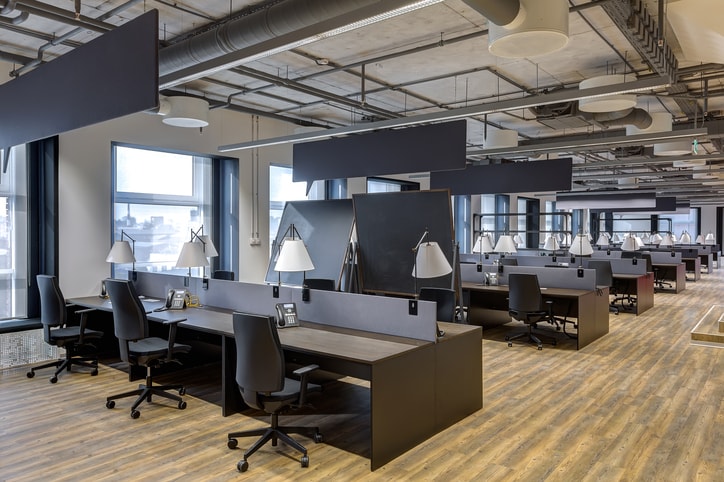Dubai is leading the way in the trend of introducing flexible office spaces in the Middle East and North Africa, according to real estate consultancy JLL.
It said this sector is set to continue to increase rapidly over coming years and currently accounts for less than 1 percent of total office stock, a figure that could increase to around 5 percent by 2022.
A new report by JLL notes that the amount of flexible space – an alternative to traditional office solutions – in the 20 largest office markets grew by 30 percent in 2017 alone.
With flexible space operators now targeting large established corporates, in addition to their traditional focus on freelancers and start-ups, this concept has the potential to disrupt the office market as we currently know it, it said.
Dubai stands out in the MENA region, with 55 projects offering around 70,000 sq m of flexible office space. However, this sector is still relatively small, accounting for less than 1 percent of the total office space in Dubai, compared to over 3 percent in key office markets across Europe.
Major free zone operators are already including flexible office space, such as Dtech in Dubai Silicon Oasis, Fintech Hub in DIFC and In5 across various Tecom projects.
Dana Williamson, head of offices & business space, JLL MENA, said: “Dubai is set to embark on the global trend of flexible office spaces, one of the biggest shifts in the real estate industry in the wider EMEA region. With ever increasing focus from Occupiers in MENA on new ways of working, the human experience and cost efficiencies, the need for flexible office space is now stronger than ever.”
JLL said barriers to flex space adoption include concerns around brand dilution, cost, security and confidentiality.
With over 700 flex space providers in the industry, consolidation is inevitable and a downturn would accelerate this process, it added.
Craig Plumb, head of research, JLL MENA said: “Investors and developers are increasingly adapting to the rise of flexible space in Dubai, by introducing their own concepts or partnering with existing providers.
“We expect to see a rapid increase in the introduction of flexible space over the coming years, with this trend resonating well with developers and investors keen to exploit new opportunities as the real estate sector adapts to rapid innovation and change.”







